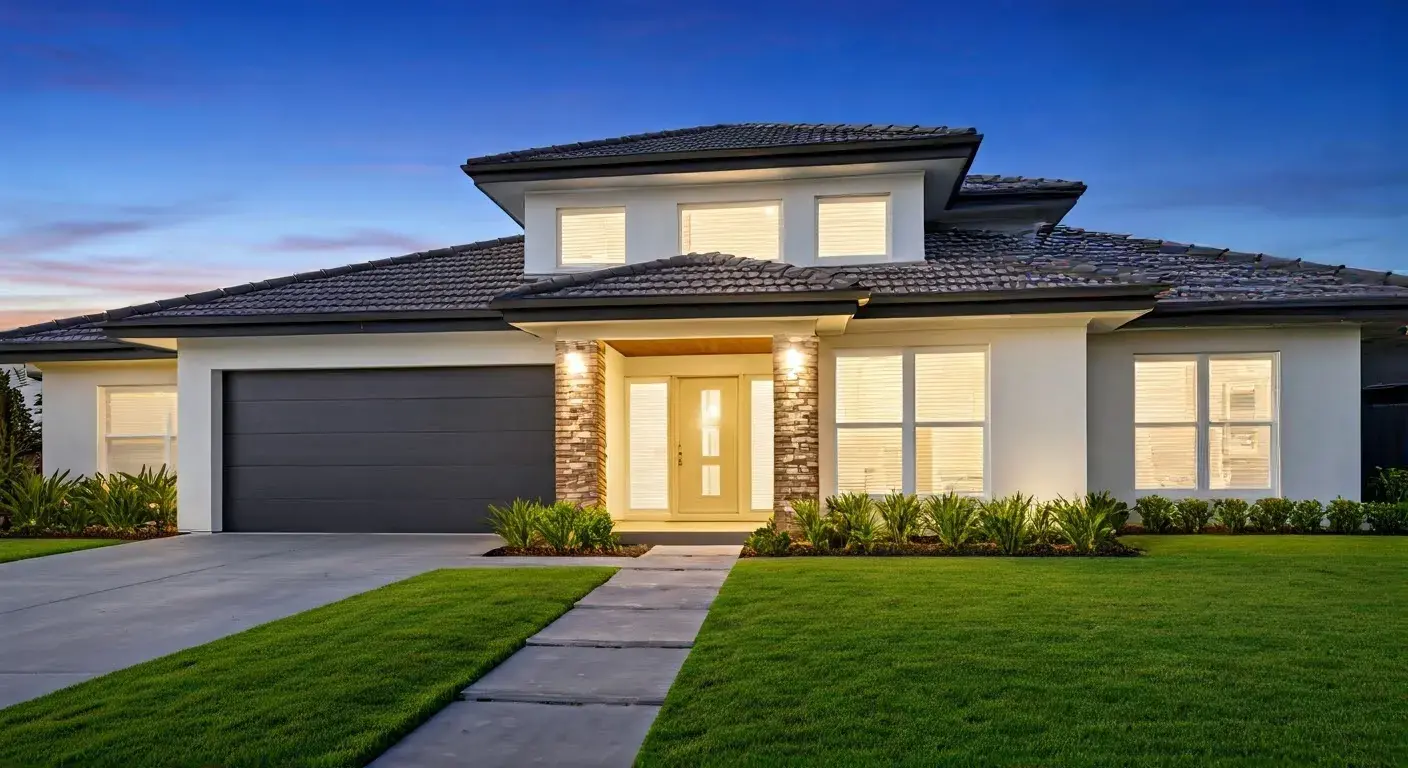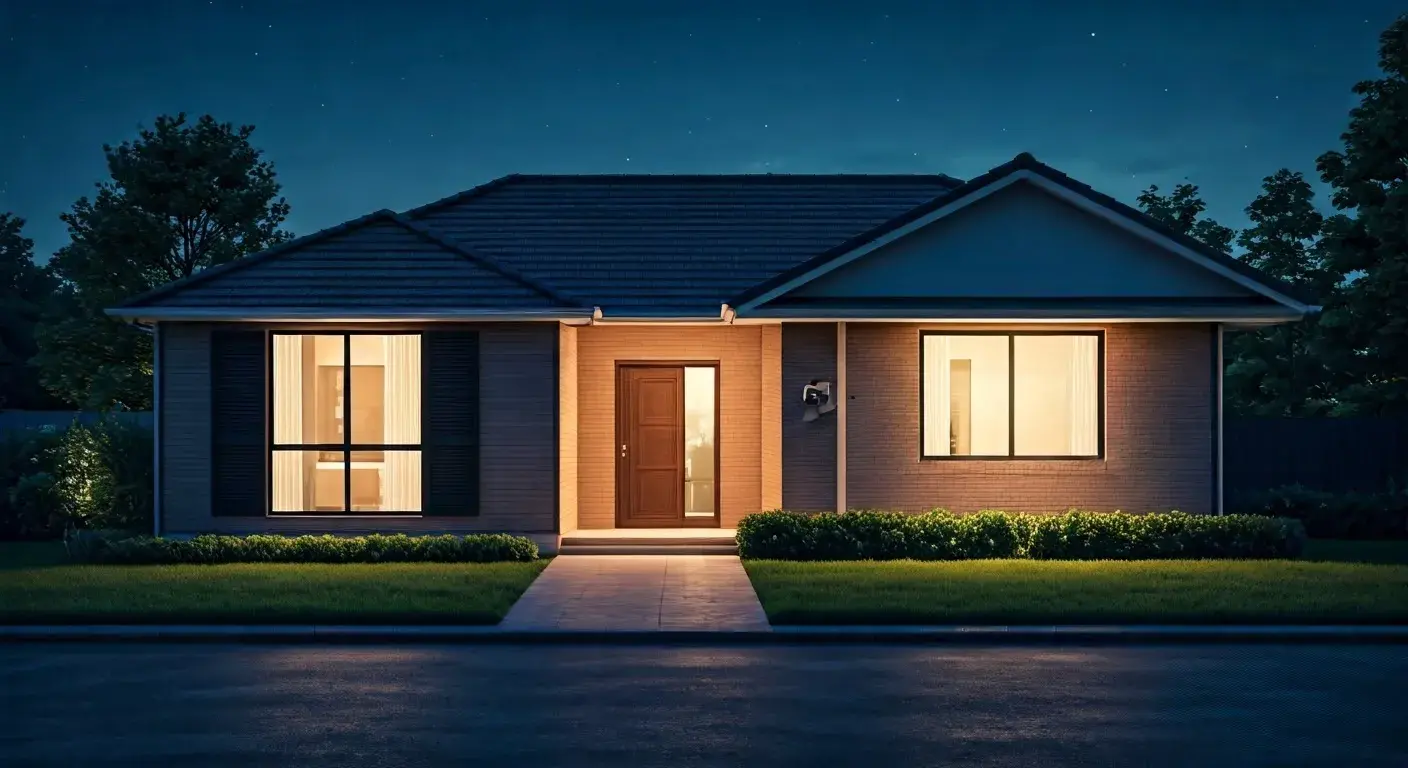Investing in a home security system brings peace of mind. You can feel safe knowing your loved ones and belongings are protected. The cost of a home security system can change a lot based on the features you choose. This blog post will help you understand the details of home security system costs. It will help you make smart choices and find budget-friendly options that do not cut corners on safety.
Understanding Home Security System Costs
Finding the right home security system can seem tricky at first. This is because many things can affect how much it will cost. It’s important to understand these factors so you can make choices that fit your budget and security needs.
The total cost includes things like equipment prices, professional installation fees, and charges for monitoring services. However, homeowners who want to stay on a budget can find affordable options that keep them safe. By paying attention to these factors, you can make a good choice.
The Basics of Home Security System Pricing
Understanding the basics of home security pricing is important for making smart choices. The costs can change depending on things like the equipment, installation, and monitoring services. DIY options may save you money compared to professional installation. Equipment costs usually include cameras, sensors, and control panels. Monthly fees for monitoring services can affect the total cost. It is key to compare prices and features from different brands. This helps you find a budget-friendly option that fits your security needs. Keeping these basics in mind will help you manage the costs of home security systems better.
Factors Influencing the Cost of Home Security Systems
Many things affect the cost of home security systems. These include how much protection you want and the type of security system you choose. You should also think about whether you want professional monitoring or if you prefer to set it up yourself. The complexity of the system is important too. Additional features like smart home automation and the costs of equipment will also affect the total price. Understanding these points can help you make good choices when you spend money on your home’s security. It is also helpful to compare prices and features from different security companies. This can change the cost.
Budget-Friendly Home Security Options
Homeowners now have many affordable options for home security that fit different needs and budgets. DIY home security systems have become popular as technology improves. They are usually cheaper than systems installed by professionals.
These systems are easy to install and often work well with current smart home devices. This brings both convenience and savings.
DIY vs. Professional Installation Costs
Choosing between DIY or professional installation for your home security system means thinking about the costs and benefits. DIY setups usually cost less upfront because you don't pay for professional help. But, when you hire a professional, you get a proper installation, which helps reduce mistakes. Going the DIY route can save you money, but professional installation brings expertise and peace of mind. Before making a decision, check your skills, how complex the system is, and what level of protection you need.
Low-Cost Home Security System Brands to Consider
Scout Alarm and SimpliSafe are trusted names in home security that offer low-cost solutions. They both provide many features at prices that fit different budgets. Scout Alarm allows you to create your packages and does not require long-term contracts. This is great if you want more flexibility. SimpliSafe is known for its easy setup and user-friendly technology. This makes it simple to secure your home effectively. Both brands focus on providing quality and reliability without cutting back on important home security features. Check out these options for dependable home protection that won't break the bank.
Cost Breakdown of Home Security Systems
Understanding the typical costs of home security system parts helps homeowners plan their budgets well. Equipment costs usually make up a large part of the first investment. This includes the control panel, which is the brain of the system. It also includes motion sensors that spot movement in the area and security cameras that offer visual monitoring.
Another important cost is the professional monitoring plan. These plans provide 24/7 monitoring and emergency response services. Prices can change based on the features included, like police, fire, and medical dispatch.
Equipment Costs Explained
When you think about the costs of equipment for home security systems, you should look at the prices of parts like cameras, sensors, control panels, and smart devices. These costs can change depending on the brand, quality, and how many you need for full coverage. Some systems have packages that include different pieces of equipment at a lower price. Others let you pick specific items but may cost more. Knowing what you need for security and the level of protection you want will help you choose the right equipment that fits your budget.
Monitoring Services: Fees and Features
Professional monitoring services for home security systems have different costs and features. Monthly fees usually include the monitoring plan, activation costs, and extra features like video surveillance and motion detectors. Security companies provide various protection levels, such as video monitoring and smart home automation features. Customers can choose services like cloud storage for video recordings and emergency response teams for quick help. It is important to know the monthly charges and the services included when picking a monitoring plan. This will help you have peace of mind and good security coverage.
How to Choose the Right Home Security System on a Budget
Picking the right home security system while staying within your budget needs careful thought. You should focus on your needs and the features that are most important to you. By taking a step-by-step approach, you can find a balance between cost and good protection.
It's important to think about your home's security needs and any weak spots when you choose a system. You should look at things like how big your property is, how many ways someone can get in, and what the area around you is like.
Assessing Your Home Security Needs
Think about how your home is set up, where the entry points are, and any weak spots before choosing a security system. Look at what kind of protection you need based on possible risks and how safe your neighbourhood is. Keep in mind if you have valuable items, family members, or pets that need protection. Decide if you want features like remote monitoring or automation. Check your budget to find a good balance between the cost and the level of protection you want. This way, you can feel safe without spending too much money.
Comparing Market Prices and Features
When thinking about the costs of home security systems, it's important to compare prices and features. Find a system that gives you the best value for your money and fits your security needs. Look at different security companies to see what their packages include and how much protection they provide. Check monthly costs, upfront fees, the quality of equipment, and any additional features like smart home automation. Do some research to make a smart choice that gives you both security and peace of mind.
Installation and Maintenance Costs
In addition to equipment and monitoring fees, homeowners need to think about installation and maintenance costs for home security systems. Installation costs can be different based on how complex the system is, how many devices you are putting in, and if you want to do it yourself (DIY) or hire a professional.
Doing it yourself can save money on labour costs. However, it needs some skill and care to make sure that everything is set up right and works properly.
Choosing professional installation is easy and gives you expert help, but it comes with extra costs. Most home security companies offer installation services, and this charge usually appears as a separate item in the quotes. Keep in mind that professional installation might also include activation fees and permits, depending on your local laws.
DIY Installation Tips to Save Money
When setting up a DIY home security system, keep these tips in mind to save money:
- First, read the manual carefully for clear setup steps.
- Next, choose good spots for sensors and cameras to cover morareasea.
- Use things you already have, like smartphones, to check on things.
- Finally, look at online forums and tutorials for help and problem-solving.
By following these money-saving tips, you can have a successful DIY installation and avoid paying for professional installation.
Maintenance and Upkeep Costs
Regular maintenance is very important for keeping your home security system working well. The first costs to buy it may be high, but you should not ignore the ongoing maintenance costs. These costs usually cover system checks, changing batteries, and updating software. By spending on the upkeep of your security system, you can fix any issues before they become big problems. This helps keep a reliable safety shield for your home. When you focus on maintenance, your security solution lasts longer and works better. This gives you peace of mind over time.
Smart Home Integration and Security
The rise of smart home technology gives great chances to improve home security without spending too much. When homeowners add smart devices to their security systems, they get more control, convenience, and peace of mind.
These devices work well with popular smart home platforms like Google Nest and Amazon Alexa, making things even easier.
Cost-Effective Smart Devices for Enhanced Security
Smart devices are a budget-friendly way to improve your home security. Using devices like smart locks, video doorbells, and motion sensors can make your home safer without spending too much. These devices add extra protection by letting you monitor and control your security system from anywhere. By using smart technology, you can make your security efforts more effective and have better peace of mind. Think about these affordable choices to create a smarter and safer home.
Integrating Smart Home Technology with Security Systems
Integrating smart home technology with security systems improves your home security. When you use smart devices like smart locks, cameras, and motion sensors, you make your defence stronger against threats. Smart home features let you monitor your home remotely and automate security tasks. They also work well with other devices to give you a complete security network. This combination not only keeps your home safer but also makes your life easier and more efficient. It's a smart choice for modern home security.
Reducing Costs with Insurance Discounts
Investing in a home security system helps keep your property and family safe. It can also lower your costs with insurance discounts. Many insurance companies lower homeowner insurance premiums for homes with security systems. They see these systems as a way to lower risks.
The amount of discount you get can differ by insurer and the type of security system you have. Usually, systems that are professionally monitored and include features like emergency response, 24/7 monitoring, and fire and intrusion detection get better discounts than self-monitored systems.
How Home Security Systems Can Lower Your Insurance Premiums
Investing in a home security system can lower your insurance costs. Insurance companies often give discounts to homeowners who have security systems. These systems reduce the risks of theft and damage. By having a good security setup, you show that you care about protecting your home. This makes insurance companies feel more secure. As a result, you might pay less for your premiums. Also, some insurers may offer extra discounts if you have features like professional monitoring or smart home integration. This way, you can boost your security and save money on insurance at the same time.
Negotiating with Insurance Companies for Better Rates
When you think about the costs of home security systems, keep in mind that some insurance companies give discounts for better security measures. You can talk to your insurance provider to see if you can lower your premiums. Point out the extra protection that your home security system offers. Insurance companies may see your home as less risky if you have a strong security setup. This can lead to better rates. It is a good idea to discuss these options to save money while making your home safe.
Conclusion
In conclusion, making your home secure is important for feeling calm. Knowing the costs of home security systems and finding budget-friendly choices can help you protect your family and property. You can choose DIY installation or look at low-cost brands. There are many ways to improve your home security that won't break the bank. By looking at your needs, comparing features, and adding smart devices, you can find a security solution that fits your budget. Remember, investing in home security helps keep your things safe. It also gives you safety and peace of mind for you and your family.






